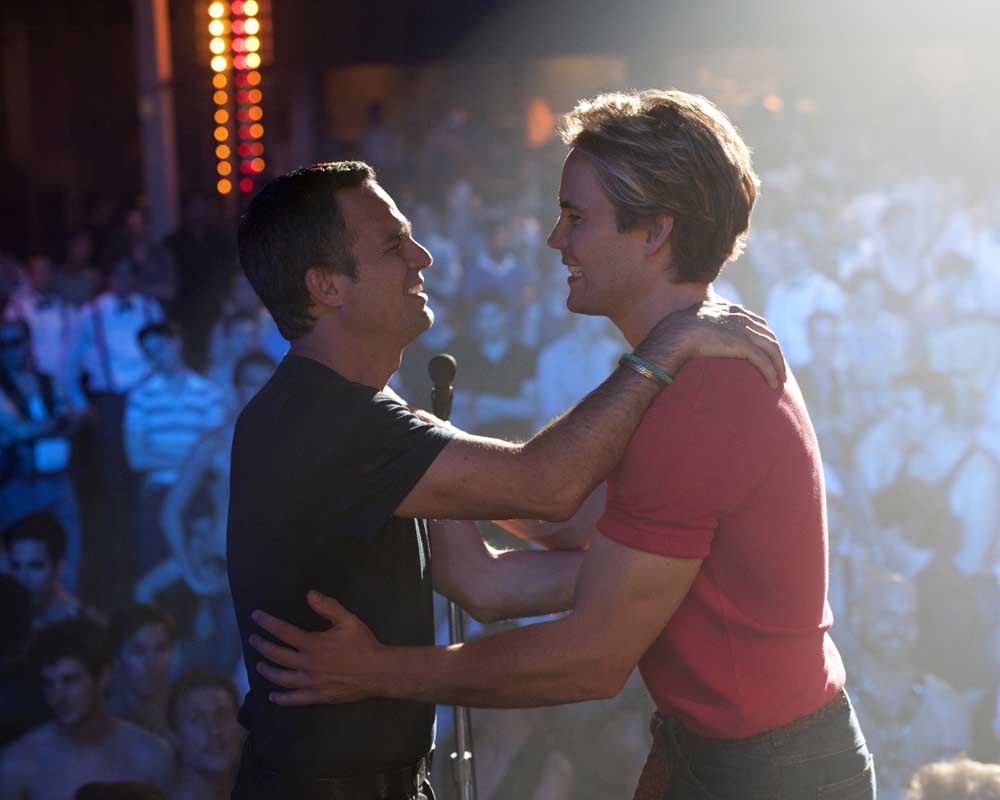‘The Normal Heart’ will break yours
Published 12:00 am Saturday, May 24, 2014

- Submitted photoMark Ruffalo, left, and Taylor Kitsch star in “The Normal Heart,” premiering Sunday on HBO.
The Pines on Fire Island in 1981 was outrageous, wonderful and carefree. It was a playground, mainly for gay men long oppressed and now out with a fabulous vengeance.
The opening moments of HBO’s “The Normal Heart,” premiering Sunday, perfectly capture the unbridled hedonism and expectations of fun. The magnificent film correctly portrays that snapshot, in which the predominant color was white but within a few years would shift to unrelenting funereal black.
AIDS.
When the film opens, AIDS was unknown. By the end, the final sentence reminds: “Since 1981, more than 36 million worldwide have died. More than 6,000 people every day are infected with the virus.”
In an epidemic, it’s impossible to grasp the situation because the numbers are staggering. But in this beautifully told story, adapted from Larry Kramer’s play, we get to know people, not numbers.
Mark Ruffalo and Matt Bomer star as lovers.
“I had to kiss Matt Bomer, who, granted, is a very good-looking man,” Ruffalo says. “I had never kissed a man before, and I was a little nervous about it. And I know what is about to happen, and we start. And the thought goes through my mind that it’s not that different from kissing a woman — except for the stubble.”
As wonderful as this movie is, it is tough to watch because it shows the hideous ravages of AIDS and the emotional tolls it took as it swept through the gay community.
Besides sterling performances — Julia Roberts in a wheelchair, portraying the doctor who was felled by polio as a child but who’s a warrior for her patients; Bomer’s terrifying transformation; and Jim Parsons re-creating his role as a gay health administrator from the Broadway play two seasons ago — the movie resonates because it nails the bewilderment, agony and fury of the time. Taylor Kitsch, Corey Stoll, Joe Mantello and Jonathan Groff also star.
Director Ryan Murphy does such a wonderful job, the film should come with a warning: Do not plan to do anything after watching. Viewers will need recovery time.
The actors found making it emotionally draining.
“There was one day where we shot the marriage scene, and you are always in tear-jerk mode, and you are sort of in the middle of it and just reflecting too much,” Ruffalo says. “I just started sobbing and could not stop for an hour. It was just too much. The whole thing just dropped on my shoulders, the enormity of the suffering, the cruelty, the ugliness between the unnecessary loss of life and unnecessary infection. We were in the hospital where thousands of people had died from AIDS. It was a real hospital, and I could not help but feel the dread and suffering crowding into that little room that day.”
In a separate interview, Bomer also cites that moment with his character on his deathbed, as he and his lover profess their undying love to each other — decades before gay marriage was a political issue — as one of the most emotional he’s experienced.
As Felix, a New York Times writer, Bomer goes from his usual stunning, buff self to skeletal for this movie. He stopped weighing himself when he lost 35 pounds but kept shedding weight.
“I fasted for 21 days and then did the diet Matthew McConaughey did,” Bomer says. “I did my own version of what he walked me through.”
When Ned approaches Felix, it is to get him to write about the disease. No one knows what is happening or why, only that gay men are dying horrible, painful deaths. The first stories, buried in the paper, referred to a gay cancer. No one knew what to call it.
“Most Americans didn’t know of the atrocities and the cruelty and the lack of compassion from our government communities, from the religious community — which should have had the most compassion — and I was outraged,” Ruffalo says.
It was an awful time when gay men went from being gorgeous and hale to physical wrecks. Hospitals and funeral homes shunned them. No one knew what to do, and anger and fear were at a fevered pitch.
Bomer, who is out and married, recalls reading this play as a high school freshman.
“I felt a great gratitude to Larry Kramer for taking action,” he says. “When I heard they were making it into a film, I called my representation and I said, ‘I don’t care what role it is, just please let me be involved with it.’”
Ruffalo says he hopes viewers glean “a better understanding of the struggles that this particular group of people have been on and gone through to be considered just human beings and that history is important, especially for the young people around us. I hope that people walk away and say, ‘You can effect change.’ And lastly, I think it is good for young gay men to know what their history is, where they come from as a point of pride, as a point of place in the world, and the significance is something that is worthy of admiration in themselves and in their culture.”






